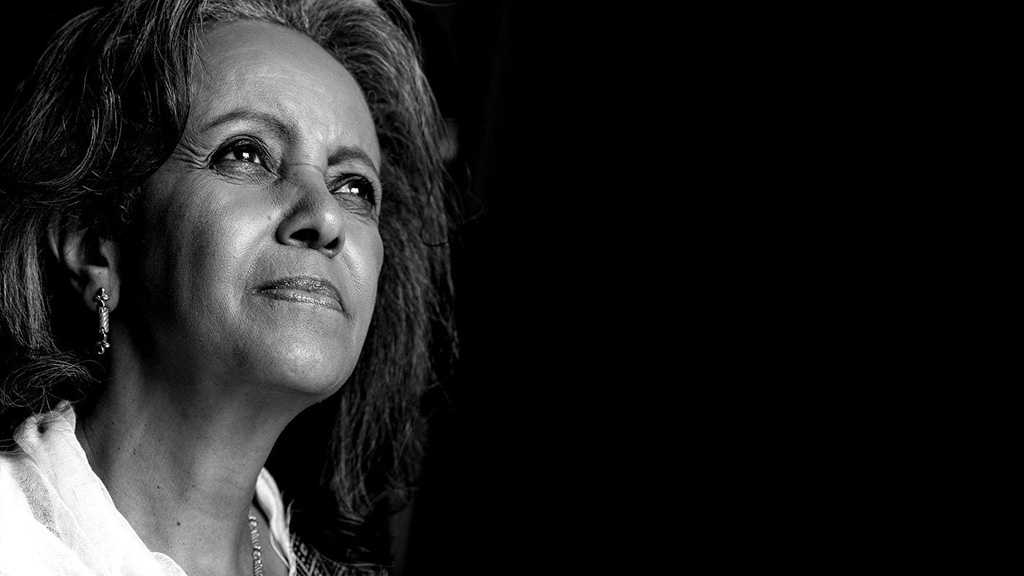
Ethiopia Appoints First Female President

Local Editor
Ethiopia Thursday appointed a woman to the largely ceremonial position of president for the first time, further increasing female representation in the government of Africa’s second most populous nation.
In a unanimous vote, Ethiopian lawmakers picked career diplomat Sahle-Work Zewde, 68, to replace Mulatu Teshome, who resigned in unclear circumstances.
Sahle-Work called Ethiopia’s recent transfer of power to the reformist Prime Minister Abiy Ahmed “exemplary” and said she will focus on bringing together all sides to achieve peace in a country with multiple ethnic-based conflicts in recent months.
“If the current change in Ethiopia is headed equally by both men and women, it can sustain its momentum and realize a prosperous Ethiopia free of religious, ethnic and gender discrimination,” Sahle-Work said Thursday.
Sahle-Work, who was born in the capital Addis Ababa and attended university in France, has been Ethiopia’s ambassador to France, Djibouti, Senegal and the regional bloc the Intergovernmental Authority on Development.
Just prior to her appointment as president she was the UN’s top official at the African Union. She is fluent in English and French as well as Amharic, Ethiopia’s main language.
“Congratulations, Madam President! Women do make a difference. We are proud of you!” the female President of the UN General Assembly Maria Fernanda Espinosa Garces said in a Twitter post. “In a patriarchal society such as ours, the appointment of a female head of state not only sets the standard for the future but also normalizes women as decision-makers in public life,” the chief of staff for Abiy said on Twitter.
As president she is expected to serve two six-year terms.
Political power in Ethiopia is wielded by the prime minister, with the president’s role restricted to attending ceremonies and functions.
Nevertheless, Sahle-Work’s position carries important symbolic weight and social influence.
“Government and opposition parties have to understand we are living in a common house and focus on things that unite us, not what divides us, to create a country and generation that will make all of us proud,” Sahle-Work said in a speech to Parliament. “The absence of peace victimizes firstly women, so during my tenure I will emphasize women’s roles in ensuring peace and the dividends of peace for women.”
Sahle-Work becomes Africa’s only serving female head of state.
A handful of African countries have in the recent past been led by female presidents with executive powers, including Ellen Johnson Sirleaf in Liberia (2006-18) and Joyce Banda in Malawi (2012-14).
Banda was elevated to the presidency following the death in office of Bingu wa Mutharika, while Sirleaf won two elections before standing down earlier this year at the end of her constitutionally mandated terms.
Ethiopian lawmakers last week approved a Cabinet with women making up a record 50 percent of ministers, including the country’s first female defense minister. A woman also leads the new Peace Ministry, which oversees the powerful National Intelligence and Security Service and the Federal Police Commission.
The Horn of Africa power joined a handful of countries, mostly European, where women make up 50 percent or more of ministerial positions, according to the Inter-Parliamentary Union and UN Women.
Likely inspired, Rwanda two days later announced its own Cabinet with 50 percent women. The country has received international recognition for female representation in government.
The moves in Ethiopia are the latest in sweeping political and economic reforms in Africa’s second most populous country since Abiy took office in April following months of nationwide anti-government protests demanding wider freedoms.
Source: News Agencies, Edited by website team



